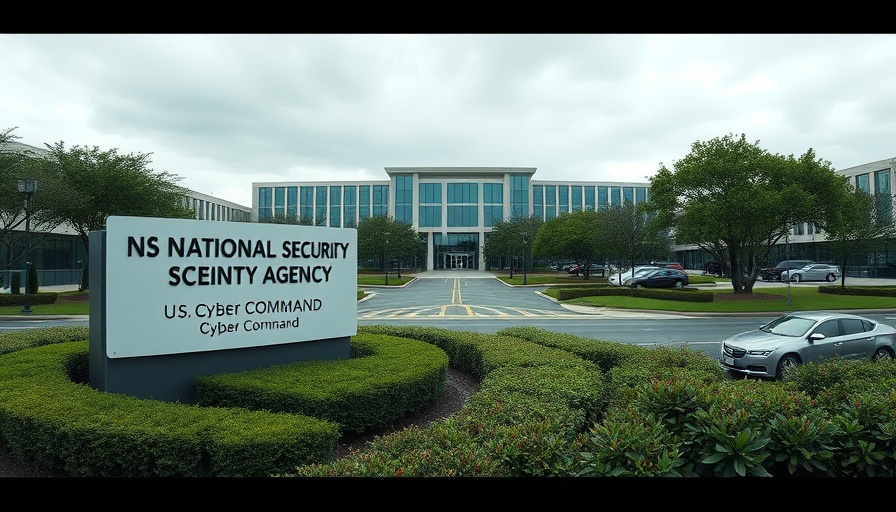
Trump Fires NSA Chief: What This Means for National Security
The Trump administration's recent decision to fire Timothy Haugh, the head of the National Security Agency (NSA) and Cyber Command, has raised alarm bells among both lawmakers and security experts. Haugh had only served in this critical role since February 2024, overseeing vital operations that protect U.S. interests in an increasingly hostile cyber landscape. His removal, instigated at a meeting with right-wing activist Laura Loomer, comes at a time when the nation grapples with escalated cyber threats, notably from adversaries like China.
The Context Behind the Dismissal
Haugh's abrupt exit from the NSA, alongside that of deputy director Wendy Noble, entails more than personal disagreements; it reflects a significant shift in the Trump administration's approach to cybersecurity. Following high-profile breaches attributed to the 'Salt Typhoon' cyberattacks, this change in leadership raises questions about continuity and effectiveness in countering growing cyber threats. Lawmakers expressed disbelief, with Senator Mark Warner highlighting, “At a time when the United States is facing unprecedented cyber threats, how does firing him make Americans any safer?”
The Impact on Cybersecurity Operations
This leadership change introduces uncertainty within the NSA and Cyber Command, both of which are tasked with critical national security responsibilities. Without clear guidance or an official successor named, there is heightened concern regarding the U.S.'s capabilities to respond to emerging threats. Haugh's tenure included engagements with tech leaders, including discussions with Elon Musk centered around aligning NSA priorities with the administration's directives, emphasizing the intersection of technology and national security.
Public Reaction and Bipartisan Condemnation
The reactions from political figures have been swift and critical. Congressman Jim Himes echoed sentiments of concern, stating he was “deeply disturbed” by the decision, underscoring the sentiment that removing experienced leaders during a critical period could be detrimental to national interests. This dismissal signals a potential political shift in how the Trump administration prioritizes cybersecurity, possibly prioritizing loyalty over expertise, which could lead to significant vulnerabilities.
Cultural and Political Implications
In the wider political landscape, this firing illuminates ongoing tensions between national security and political allegiance. As the threat of cyber warfare and intelligence breaches becomes more pronounced, sidelining experienced leaders like Haugh raises critical questions about who will lead the charge against these adversaries in the future. It reflects wider ideological divides where the emphasis seems to pivot from strategic security to political loyalty.
Looking Ahead: What Comes Next?
Moving forward, the Trump administration faces crucial decisions regarding national cybersecurity governance. The absence of seasoned professionals could hamper response times to threats and limit strategic advancements in technology. As the situation develops, experts and lawmakers will be watching closely, emphasizing the pressing need for a straightforward communication plan from the government outlining how it intends to address these challenges.
Conclusion: The Path Forward
In an era defined by rapid technological advancement and aggressive cyber tactics, leadership stability within critical security agencies such as the NSA is paramount. The quiet shuffle of leadership begs the question: will the next appointment align more with political agendas or the pressing need for exemplary service in the face of cyber threats? As we await clarity from the administration, it is crucial for citizens and policymakers alike to demand transparency and accountability in safeguarding U.S. cybersecurity.
 Add Row
Add Row  Add
Add 



Write A Comment